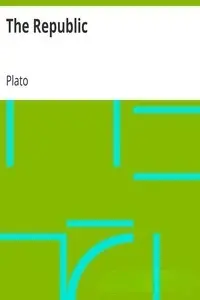Summary
The Republic is one of the most influential works in Western philosophy, written by the ancient Greek philosopher Plato around 380 BCE.
The text is presented as a dialogue primarily between Socrates and several other Athenian figures, exploring profound questions about justice, the ideal state, human nature, and the pursuit of truth.
At its core, the book seeks to define justice and to understand how a just society should be structured.
Plato, through Socratic reasoning, proposes a tripartite class system for an ideal city-state, comprising Rulers (Philosopher-Kings), Guardians (Warriors), and Producers (Workers and Artisans). Each class corresponds to a part of the soul—reason, spirit, and appetite—and justice arises when each part performs its proper role in harmony.
One of the most famous sections is the Allegory of the Cave, a metaphor illustrating how most people live in ignorance, mistaking shadows for reality—until philosophical insight reveals the true world of forms and ideas.
Beyond politics, the book delves into education, censorship, gender equality, the immortality of the soul, and the nature of reality, making it a foundational text in both political theory and metaphysics.
